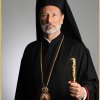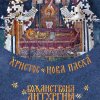Proposal For St Nikolai of Zica and South Canaan and St Iustin of Chelije
SERBIAN HOUSE OF STUDIES
at Saint Vladimir’s Orthodox Theological Seminary
The purpose of this document is to lay out the framework of a proposed Serbian House of Students at SVOTS (SHS).
.Purposes:
- to promote a sustained presence of the Serbian Orthodox theological traditions in America
- to promote a sustained dialogue between Orthodoxy in Serbia and America
- to provide the highest level of education, incorporating Serbian theological traditions (heritage, history, liturgy), for the service of the Serbian Orthodox Church in America
- to provide an experience of Orthodoxy in the West for theological students from Serbia, and a place for research for faculty from Serbia
- to be a liason-center for Serbian alumni in the US and throughout the world
- to run events throughout the year promoting its work
1. Advisory Board
Functioning
The function of the Advisory Board is to promote the aims of as described above, by
- fundraising
- supervising of the SHS and its activities
- development of calendar of events at SHS
Composition
Advisory Board of SH appointed by Board of Trustees of SVS with due regard to heritage of the house, comprising of
- three members of the Board of SVS, including one episcopal member
- and three invited others,
- Faculty-in-Residence
- Serbian Alumnus
- Dean and Chancellor of SVS
2. Establishment of a Restricted Endowment Fund
This would be part of the SVOTS Endowment, but restricted to use for the support of SHS, providing funding for the House Master (to add to salary from Belgrade), student scholarships, hosting events, newsletter, library acquisitions.
3. The House
SHS will be located on the campus of SVOTS. The aim is to raise funds to build a house which will include a chapel, meeting room(s), and accommodation for the Faculty-in-Residence.
Temporary accommodation will be provided until such times as the funds are raised and a House built.
4. Faculty-in-Residence
The Faculty-in-Residence will be a visiting member from the Theological Faculty of Belgrade, on sabbatical, recommended by the Dean of the Faculty of Belgrade, reviewed by SVOTS Faculty and appointed to a sessional appointment of an appropriate length. The name is to be proposed to SVOTS by Jan 1 of the academic year preceding the residency.
Duties of the Faculty-in-Residence include:
- Be a member of Advisory Board
- By invitation, attend Faculty Council
- Teaching courses on the Serbian contribution to Orthodoxy and their own discipline, reporting to the Associate Dean for Academic Affairs
- Fostering peer-community amongst Serbian students (hosting at-home evenings, etc), reporting to the Associate Dean for Student Affairs
- With Advisory Board, and the Special Events Committee of SVS, plan and run events
5. Students
Full-time Degree-program students
Students supported by the SHS must be fully admitted students of SVS in a degree program.
The SHS Restricted Endowment Fund will provide scholarships to awarded to Serbian, or Serbian-American, men and women who demonstrate need, strong academic performance, and promise of significant service to the Church, admitted to SVS (up to 100% of tuition, books, and room/board of a single student).
Students will live in SVS student accommodation, eat in the refectory, attend SVS chapel, apart from special events.
Exchange Students
M.Div. exchange students, between SVS and the Theological Faculty of Belgrade, will pay tuition and accommodation at their home school.
It is our intention to develop this exchange program into a more fully developed joint-degree program, including having the SVS ThM program count towards one year of doctoral study in Belgrade.
6. SHS Alumni Association
The House will also provide a liason-center for Serbian alumni, keeping them connecting and fostering community amongst priests nationally and internationally.
7. Publications
The publication of a newsletter reporting on events at the SHS, SVOTS and the Theological Faculty of Belgrade.




